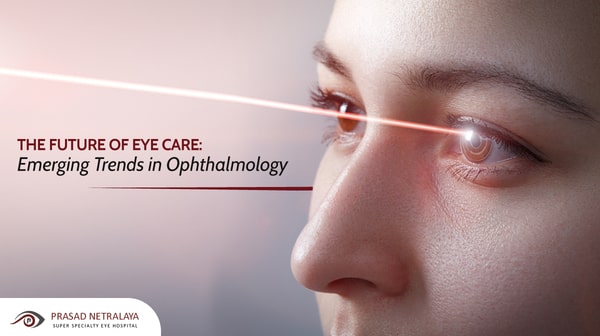Expert Neurologist Andalusia: Comprehensive Brain Health Services
Expert Neurologist Andalusia: Comprehensive Brain Health Services
Blog Article
Is Refractive Surgical Procedure Right for You? Factors to Think About for Better Eyecare
In the realm of eye care, the decision to go through refractive surgery is a significant one that demands thoughtful consideration. From the intricacies of one's ocular wellness to the intricacies of individual assumptions and everyday practices, each aspect holds importance in the broader landscape of refractive surgery candidateship.
Eye Wellness Analysis
When taking into consideration refractive surgery, a thorough eye wellness examination is vital to examine the suitability of the procedure for each and every person. eye doctors in andalusia. This evaluation entails a series of assessments and tests conducted by an eye treatment expert to identify the total wellness of the eyes, the existence of any type of underlying conditions, and the stability of the refractive error
Throughout the assessment, various variables are taken into consideration, such as the client's medical background, current eye prescription, corneal density, pupil size, and tear movie high quality. These assessments aid to recognize any kind of contraindications to refractive surgical procedure, such as corneal problems, cataracts, or unattended eye infections. Furthermore, the examination assists to handle patient assumptions pertaining to the prospective results of the surgery based on their unique eye qualities.
Inevitably, the eye health examination is crucial in ensuring the security and efficiency of refractive surgical procedure, as it offers useful understandings into the individual's eye health and wellness status and assists establish one of the most ideal treatment options for achieving optimal visual outcomes. (neurologist andalusia)
Way Of Living Analysis
A thorough way of living assessment is indispensable in identifying the viability of refractive surgery for a person's visual improvement needs. Way of living elements such as line of work, hobbies, and everyday activities play a vital role in the decision-making procedure concerning refractive surgical procedure.
Additionally, lifestyle habits such as sports engagement, exterior tasks, or also skincare routines can affect the recovery procedure and general success of refractive surgical procedure. By carrying out a detailed way of life assessment, eye care specialists can customize their suggestions and treatment strategies to satisfy the distinct needs of each patient, inevitably leading to enhanced visual end results and fulfillment.
Expectation Alignment

Individuals need to comprehend that while many people achieve 20/20 vision or much better adhering to refractive surgical treatment, some might still require glasses for particular activities like analysis or driving at night. Managing these assumptions helps stop disappointment and discontentment post-surgery, leading to a more favorable overall experience for the person.
Risk Evaluation

Aspects that may increase the danger of issues consist of age, certain clinical problems like autoimmune illness, unstable vision prescription, slim corneas, and unrealistic client assumptions. Furthermore, selecting a knowledgeable and Continued experienced cosmetic surgeon, adhering to pre and post-operative care guidelines carefully, and disclosing any type of relevant clinical history can aid alleviate threats.
To reduce the likelihood of issues, eye doctors conduct detailed pre-operative assessments to identify any kind of contraindications to surgical treatment. They also go over the potential dangers and advantages with patients during the appointment procedure. By engaging in open interaction and shared decision-making, both the eye doctor and the person can work with each other to figure out if refractive surgical treatment is the best selection based on private danger profiles and desired outcomes.
Assessment Significance
Thinking about the important function of notified decision-making in evaluating risks and potential complications in refractive surgery, the consultation procedure holds considerable value in directing clients towards optimum end results. Throughout the assessment, the ophthalmologist evaluates the person's eye health and wellness, refractive mistakes, and general viability for surgical procedure. This first evaluation is critical in identifying the most suitable treatment for each individual, taking into consideration variables such as corneal thickness, pupil size, and existing eye conditions.
Moreover, the consultation acts as a chance for patients to discuss their assumptions, problems, and any kind of questions they Your Domain Name might have concerning the surgical treatment. Clear interaction between the cosmetic surgeon and the patient is necessary to guarantee practical expectations and an extensive understanding of the possible dangers and advantages involved.
Furthermore, the consultation enables the doctor to describe the different medical alternatives available, their corresponding outcomes, and the post-operative treatment required. This extensive conversation empowers people to make knowledgeable choices concerning their eye care, bring about much better satisfaction and results post-surgery.
Conclusion
Finally, people thinking about refractive surgery needs to go through a thorough eye health examination, assess their lifestyle routines, straighten their assumptions with potential outcomes, evaluate the connected threats, and prioritize assessments with eye treatment experts. These factors play a critical role in figuring out the viability of refractive surgical procedure for each individual, guaranteeing optimum end results and complete satisfaction with the procedure.
People taking into consideration refractive surgery frequently have high expectations relating to the outcomes, expecting ideal vision without the need for glasses or get in touch with lenses. While refractive surgical treatment can greatly improve vision and decrease dependency on aesthetic aids, it is important for people to recognize that outcomes may vary based on specific aspects such as the degree of refractive error, corneal density, and total eye health and wellness.
By engaging in open interaction and shared decision-making, both the ophthalmologist and the patient can view publisher site function together to identify if refractive surgery is the appropriate option based on specific threat accounts and desired end results.
Taking into consideration the vital function of notified decision-making in analyzing risks and prospective issues in refractive surgery, the appointment process holds considerable relevance in leading clients towards ideal results. During the assessment, the eye doctor examines the person's eye wellness, refractive errors, and total suitability for surgery.
Report this page